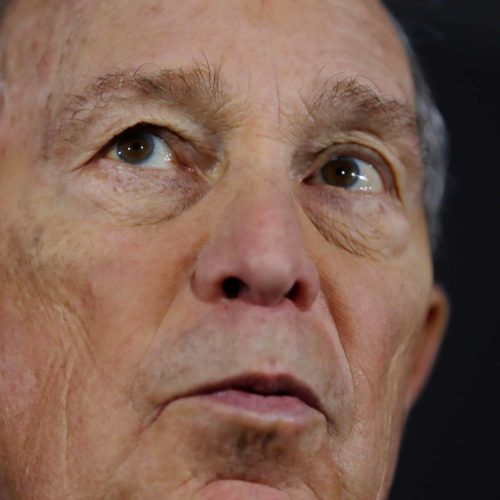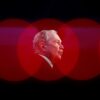Introduction
The Center for Public Integrity is a nonprofit newsroom that investigates betrayals of public trust. Sign up to receive our stories.
Michael Bloomberg is extraordinarily rich. And in December, soon after becoming an extraordinarily rich presidential candidate — one required by law to publicly disclose his personal assets within one month’s time — Bloomberg pleaded plenitude.
“Mr. Bloomberg requires additional time to collect information regarding complex holdings and prepare and file his report,” Bloomberg attorney Lawrence Norton wrote to regulators at the Federal Election Commission.
The FEC, as it all but reflexively does with dallying presidential candidates, granted Bloomberg’s request for 45 more days — days that came and went.
On Jan. 17, another letter.
“Mr. Bloomberg … has made diligent efforts to prepare his report,” Norton wrote the FEC. “Nevertheless, due to the complexity of his holdings and the need to obtain certain information from third parties, Mr. Bloomberg needs additional time to gather and review his financial information and complete and file his report.”
The FEC again gave Bloomberg 45 more days. The former mayor of New York City and Bloomberg LP mogul needn’t file his personal financial disclosure form until March 20 — after Bloomberg had already pumped more than half a billion dollars of his own money into his campaign and after millions of Democrats cast ballots during Super Tuesday primaries.
Small hitch: Bloomberg is now a former presidential candidate. As such, he is no longer under legal obligation to disclose the sources of his wealth or any creditors he owes, according to guidance from the FEC and Office of Government Ethics.
In essence, Bloomberg ran out the clock on transparency.
Why still care now if Bloomberg quit the race?
Because Bloomberg’s 101 days as a presidential candidate scrambled the Democrats’ race for president in ways that will reverberate through Election Day.
His omnipresent TV and online ads, coupled with his army of staffers, helped price or otherwise squeeze some Democratic candidates out of contention — 13 quit between the time Bloomberg announced his presidential bid on Nov. 24 and today.
And none of the 1.7 million-plus people known to have cast Super Tuesday ballots for Bloomberg — votes in states such as California are still being tallied — knew if the candidate’s financial interests and entanglements conflicted with his political ambitions.
Voters, government watchdogs say, are the losers.
“Depriving members of the public of that information before they’re asked to vote defeats the entire purpose of disclosure,” noted Walter Shaub, the former Office of Government Ethics director who’s now a senior adviser to the nonpartisan Citizens for Responsibility and Ethics in Washington. “Maybe they’d be fine with what they read in a financial disclosure, maybe they wouldn’t be, but they ought to have the opportunity to consider ethics issues in advance.”
Added Beth Rotman of nonpartisan Common Cause: “It’s troublesome.”
Who We Are
The Center for Public Integrity is an independent, investigative newsroom that exposes betrayals of the public trust by powerful interests.
Bloomberg, whose campaign did not respond to requests for comment, isn’t alone among Democratic presidential candidates in playing transparency tricks.
Take Sen. Bernie Sanders who — like Bloomberg — failed to disclose his personal finances before ending his 2016 presidential campaign and yielding to eventual nominee Hillary Clinton. This election cycle, Sanders has maintained his outrage against big money and secret money in politics — but has accepted the support of Our Revolution, a nonprofit organization he founded that doesn’t fully disclose information about its funders, particularly those who’ve contributed the most.
Sen. Elizabeth Warren, meanwhile, spent months hating on super PACs and disavowing their support — before changing course when a cash-flush group called Persist PAC began boosting her flagging campaign with millions of dollars in ads. Because of a quirk in federal disclosure laws, the public won’t know until March 20 who funds this pro-Warren super PAC.
But both candidates filed their most recent rounds of personal financial disclosures early in their campaigns, as did the more than 20 other Democrats who at one time sought their party’s 2020 presidential nomination.
And none — save for businessman Tom Steyer and former Rep. John Delaney — possessed wealth in any fashion resembling that of Bloomberg.
Presidential candidates’ personal financial disclosure documents have illuminated President Donald Trump’s financial holdings and golf club income.
They’ve shown how Sanders, who routinely rails against “millionaires and billionaires,” had become a millionaire himself.
They’ve illustrated how Warren and former Vice President Joe Biden (who Bloomberg today endorsed) scored big bucks off book deals or private speaking engagements.
Personal financial disclosure documents differ from candidates’ income tax returns in that they generally provide less detailed information and don’t typically address certain kinds of financials, such as a candidates’ charitable giving or personal home.
Bloomberg — in a manner reminiscent of pre-presidency Trump — had also vowed last month to release his tax returns.
“We’re releasing them. They’ll be out in a few weeks, and that’s as fast as I can do it,” he said during a Democratic debate in Las Vegas.
Bloomberg is under little pressure to keep that promise, either.
Read more in Money and Democracy
Coronavirus and Inequality
Federal agencies are doing little about the rise in anti-Asian hate
The federal government’s response amid the coronavirus pales in comparison to actions taken during the SARS outbreak and after the 9/11 terrorist attacks.
Coronavirus and Inequality
City leaders to Trump: help us fight the coronavirus by paying your bills
Fourteen city governments say the president’s campaign now owes them a collective $1.82 million. The campaign says it’s not responsible.




Join the conversation
Show Comments